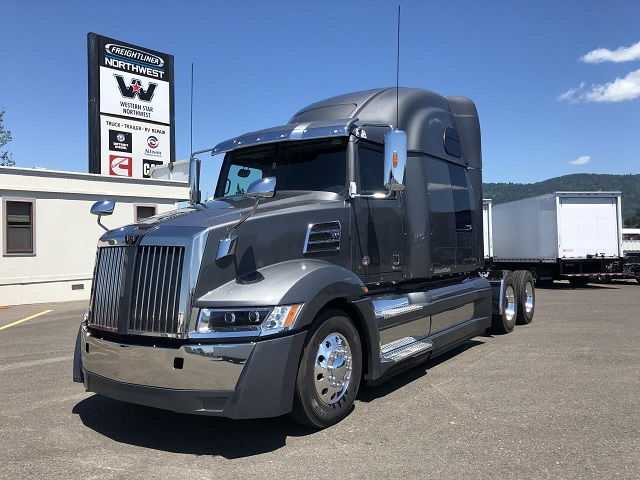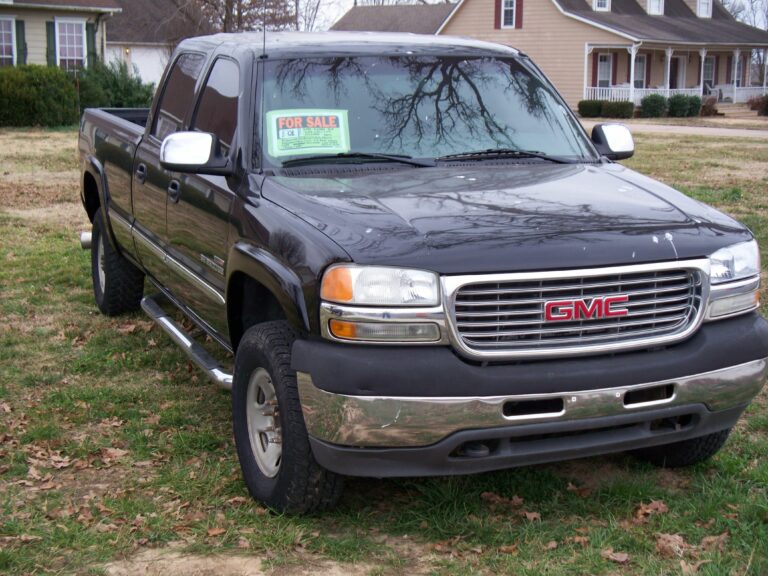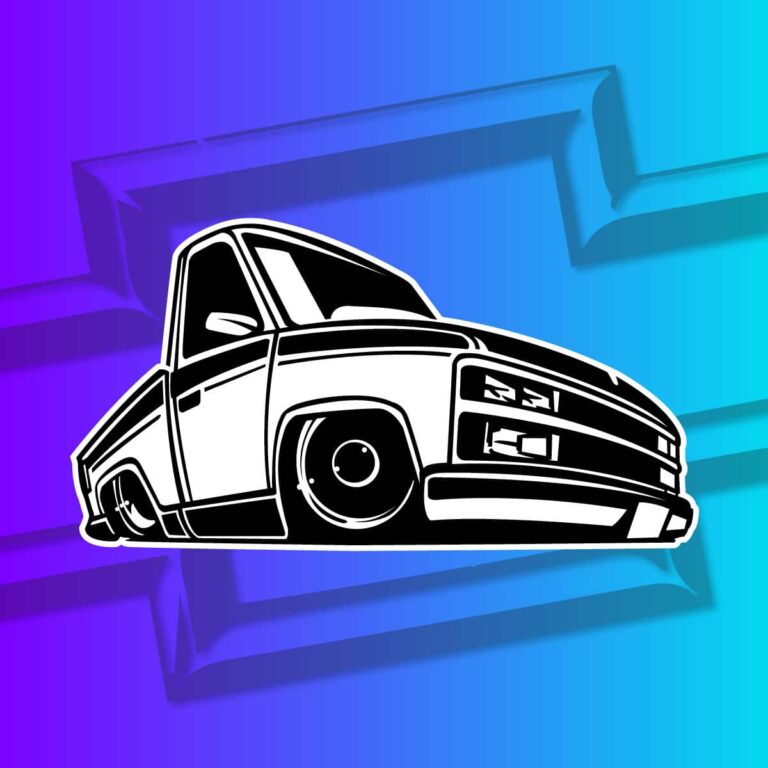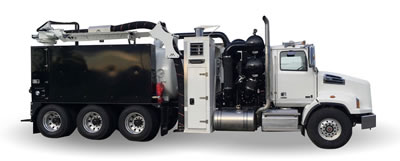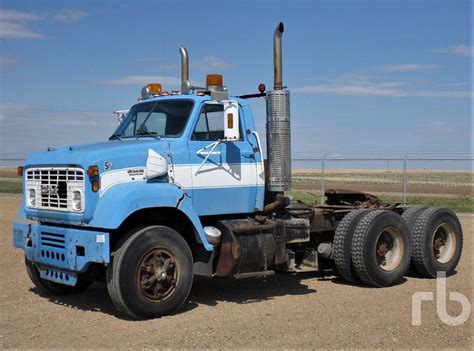Sign Trucks For Sale Near Me: Your Ultimate Guide to Finding the Perfect Mobile Workhorse
Sign Trucks For Sale Near Me: Your Ultimate Guide to Finding the Perfect Mobile Workhorse cars.truckstrend.com
In the dynamic world of signage, where towering billboards meet intricate storefront designs, the unsung hero is often the workhorse that gets the job done: the sign truck. More than just a vehicle, a sign truck is a specialized piece of equipment, a mobile workshop, and an indispensable tool for sign companies, electrical contractors, municipalities, and anyone involved in the installation, maintenance, or repair of elevated signs and lighting. When the need arises, the convenience and logistical advantages of finding "Sign Trucks For Sale Near Me" cannot be overstated. This comprehensive guide will navigate you through the intricate process of identifying, evaluating, and purchasing the ideal sign truck, ensuring your business stays aloft, both literally and figuratively.
Understanding the "Sign Truck": More Than Just a Lift
Sign Trucks For Sale Near Me: Your Ultimate Guide to Finding the Perfect Mobile Workhorse
At its core, a sign truck is a vehicle equipped with an aerial device designed to safely lift workers and tools to elevated positions. While the term "sign truck" is often used broadly, it primarily refers to a few distinct types of commercial vehicles, each with specific capabilities tailored for the signage industry:
- Bucket Trucks (Aerial Lift Trucks): The most common type, these feature an extendable boom with a work platform or "bucket" at the end. They are ideal for reaching various heights for sign installation, repair, and maintenance. Key features include boom length (reach), platform capacity, and insulation (for electrical work).
- Crane Trucks (Boom Trucks): Equipped with a hydraulic crane arm, these trucks are designed for lifting heavier loads, such as large monument signs, structural components, or even entire sign cabinets. While they can have personnel baskets, their primary function is lifting heavy materials.
- Digger Derricks: Less common for just sign work, digger derricks combine a powerful boom with an auger attachment, making them suitable for drilling holes for sign poles or foundations. They also have lifting capabilities similar to crane trucks.
The specific type of sign truck you need will depend on the nature of your work, the typical size and weight of the signs you handle, and the heights you need to reach.
Benefits of Owning a Sign Truck for Your Business
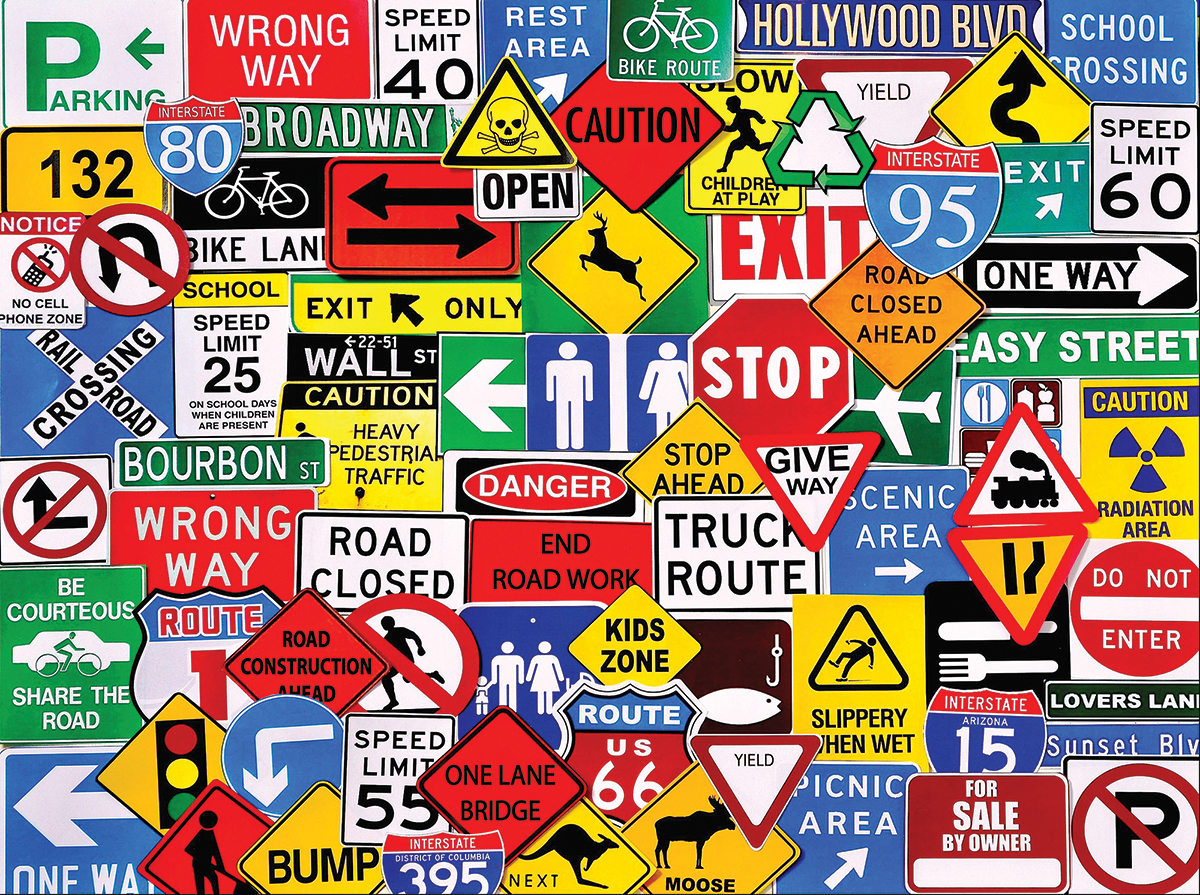
Investing in a dedicated sign truck offers a multitude of advantages that can significantly impact your operational efficiency, safety, and bottom line:
- Enhanced Safety: Eliminates the need for scaffolding or ladders for high-level work, drastically reducing the risk of falls and improving worker safety.
- Increased Efficiency & Speed: Workers can quickly and safely access elevated areas, speeding up installation, maintenance, and repair tasks. Tools and materials can be easily lifted with them.
- Versatility: Capable of handling a wide range of sign types, from wall-mounted signs and channel letters to pole signs, monument signs, and even streetlights.
- Cost-Effectiveness (Long-Term): While the initial investment can be substantial, owning a truck eliminates ongoing rental costs, which can quickly add up for frequent jobs. It also allows for greater scheduling flexibility.
- Professional Image: Arriving at a job site with a well-maintained, specialized sign truck conveys professionalism and capability to your clients.
- Self-Sufficiency: No more waiting for rental equipment or relying on third-party services. Your team can respond quickly to calls and complete jobs on your own schedule.

The "Near Me" Advantage: Why Local Matters When Buying

When searching for "Sign Trucks For Sale Near Me," the geographical proximity offers practical benefits that go beyond simple convenience:
- Reduced Transportation Costs: Hauling a large commercial vehicle across states can be expensive. Buying locally significantly cuts down on delivery fees or fuel costs if you’re driving it yourself.
- Easier Inspections and Test Drives: You can easily visit the seller multiple times, conduct thorough inspections, and perform test drives of the vehicle and its aerial equipment without significant travel.
- Local Regulations and Licensing: While most truck regulations are federal, some state or local requirements might influence your purchase or post-purchase modifications. A local seller might be more familiar with these.
- Access to Local Mechanics and Parts: Establishing a relationship with local service centers that specialize in commercial trucks and aerial equipment can be invaluable for future maintenance and repairs.
- Support Local Economy: Investing in a local business strengthens your community and can sometimes open doors for networking opportunities.
Where to Find Sign Trucks For Sale Near Me
The search for the perfect sign truck often begins online, but expands to various channels to ensure you cover all bases:
-
Online Commercial Vehicle Marketplaces:
- Commercial Truck Trader: A leading platform specifically for commercial vehicles, offering extensive filters for type, make, model, and location.
- TruckPaper: Another massive marketplace for heavy equipment and commercial trucks.
- Ritchie Bros. Auctioneers / IronPlanet: Excellent for finding used equipment through online and live auctions.
- eBay Motors: Often has a commercial truck section, sometimes with good local deals.
- Craigslist (Local): Be cautious, but local listings can sometimes reveal hidden gems from private sellers or smaller businesses.
-
Commercial Truck Dealerships:
- New Truck Dealers: Major manufacturers like Ford, Freightliner, International, and Peterbilt have dealers who sell new chassis that can be upfitted with aerial devices.
- Used Truck Dealers: Specialized dealerships focus solely on pre-owned commercial trucks, often including a selection of sign trucks.
-
Auctions:
- Public Auctions: City, county, and state governments often auction off surplus equipment, including utility and sign trucks.
- Private Auctions: Industrial equipment auctions can be a source.
- Online Auction Platforms: Beyond Ritchie Bros., many smaller online auction sites exist.
-
Direct from Businesses:
- Networking: Reach out to other sign companies, electrical contractors, or utility companies in your area. They might be upgrading their fleet and selling older, well-maintained vehicles.
- Local Classifieds/Trade Publications: Less common now, but still worth a look.
A Step-by-Step Guide to Buying a Sign Truck Locally
Purchasing a sign truck is a significant investment. Follow these steps to ensure a wise and informed decision:
-
Define Your Needs and Budget:
- Height/Reach Requirements: How high do you typically need to go?
- Platform Capacity: How many workers and how much equipment do you need to lift?
- Weight Capacity (for Crane Trucks): What’s the heaviest sign component you’ll lift?
- Insulation Needs: Will you be working near live power lines? If so, an insulated bucket is critical.
- Budget: Consider not just the purchase price, but also insurance, fuel, maintenance, and potential repair costs.
-
Research Local Listings: Use the platforms mentioned above, filtering by your location. Be specific with keywords like "bucket truck," "aerial lift truck," "crane truck," or "sign truck."
-
Initial Screening: Look at photos, descriptions, mileage, and hours on the boom. Discard anything that clearly doesn’t meet your core requirements or seems overpriced.
-
Thorough Inspection (Critical Step!):
- Chassis & Engine: Check for rust, leaks, tire condition, and listen to the engine. Review maintenance records.
- Boom/Aerial Device: Operate the boom through its full range of motion. Listen for unusual noises, check for leaks in hydraulic lines, inspect cylinders, and look for cracks or damage on the boom structure.
- Platform/Bucket: Inspect for damage, ensure controls are responsive.
- Outriggers: Ensure they deploy and retract smoothly and hold pressure.
- Electrical System: Test all lights, gauges, and safety features.
- Safety Certifications: Crucially, check if the aerial device has up-to-date dielectric testing (for insulated buckets) and annual ANSI/OSHA inspections. This is non-negotiable for safety and compliance.
- GET A PROFESSIONAL INSPECTION: If you’re serious about a truck, hire a certified mechanic specializing in commercial trucks and aerial lifts to perform a pre-purchase inspection. This small investment can save you thousands.
-
Review Maintenance Records: A well-documented history of service and repairs is a strong indicator of a well-maintained vehicle.
-
Test Drive: Drive the truck to assess its roadworthiness. Then, operate the boom extensively. Have someone observe from the ground for any issues.
-
Negotiate Price: Based on your research, the inspection, and comparable sales, negotiate a fair price. Don’t be afraid to walk away if the deal isn’t right.
-
Secure Financing & Payment: Have your financing pre-approved or funds ready.
-
Handle Paperwork: Ensure the title is clear, and understand all necessary steps for registration, licensing, and any required permits in your locality.
Important Considerations and Potential Challenges
- New vs. Used: New trucks offer warranties and the latest tech but come at a premium. Used trucks are more affordable but carry higher risk without proper inspection.
- Maintenance History: A lack of maintenance records is a huge red flag. An improperly maintained aerial device is a serious safety hazard.
- Certification & Safety: OSHA compliance is paramount. Ensure the truck meets all safety standards, especially regarding annual inspections and dielectric testing for insulated units.
- Weight and GVWR (Gross Vehicle Weight Rating): Be aware of the truck’s GVWR. Depending on its weight, your operators might need a Commercial Driver’s License (CDL).
- Hidden Costs: Beyond the purchase price, factor in insurance, specialized parts, and the cost of specialized mechanics for aerial equipment.
- Upfitting Needs: Some trucks might require additional storage, toolboxes, or power outlets specific to your signage work.
Tips for a Successful Purchase
- Don’t Rush: Take your time to find the right truck. Patience pays off.
- Bring an Expert: Always have a trusted mechanic or aerial lift specialist accompany you for inspections.
- Verify Everything: Don’t take the seller’s word for it. Check VINs, service records, and certifications independently.
- Budget for Post-Purchase: Set aside funds for immediate maintenance, fluid changes, and any minor repairs or upgrades.
- Understand Market Value: Research comparable sales in your area to ensure you’re getting a fair deal.
Price Table: Estimated Costs for Sign Trucks
The price of a sign truck can vary dramatically based on its type, age, condition, mileage, boom length, features, and geographical location. This table provides a general estimate for trucks found "near me," emphasizing the factors that influence cost.
| Category | Type of Truck | Key Features (Example) | Condition | Estimated Price Range (USD) | Key Factors Affecting Price |
|---|---|---|---|---|---|
| Entry-Level/Small | Bucket Truck (Light) | 30-40 ft working height, non-insulated, lower mileage | Used (Good) | $25,000 – $55,000 | Boom length, insulation (non-insulated lower), chassis mileage, year, minor cosmetic wear |
| Mid-Range Workhorse | Bucket Truck (Medium) | 45-65 ft working height, insulated option, moderate mileage | Used (Exc.) | $55,000 – $95,000 | Boom length, insulation (adds value), chassis condition, service history, recent certifications |
| Crane Truck (Light) | 5-10 ton lift capacity, shorter boom | Used (Good) | $60,000 – $100,000 | Lift capacity, boom reach, chassis mileage, crane hours, PTO condition | |
| Heavy-Duty/Specialized | Bucket Truck (Heavy) | 70-100+ ft working height, insulated, low mileage | Used (Exc.) | $95,000 – $180,000+ | Max reach, insulation, platform capacity, chassis make/model, advanced safety features |
| Crane Truck (Medium/Heavy) | 15-30+ ton lift capacity, longer boom | Used (Exc.) | $120,000 – $300,000+ | Lift capacity, boom length, number of sections, outrigger type, specialized attachments | |
| New (Base Model) | Various (Customizable) | Built to order, warranty, latest safety features | New | $150,000 – $400,000+ | Chassis brand, boom manufacturer, customization options, specific safety/electrical ratings |
Note: These are estimates. Prices can fluctuate significantly based on market demand, economic conditions, specific features (e.g., generator, air compressor, specialized tool storage), and the seller’s urgency. Always get a professional inspection for used trucks.
Frequently Asked Questions (FAQ) About Sign Trucks
Q1: What’s the main difference between a bucket truck and a boom truck?
A1: A bucket truck (or aerial lift truck) primarily lifts personnel in a work platform (bucket) to elevated positions. A boom truck (or crane truck) is designed for lifting heavy materials and equipment using a crane arm, though some can also have a personnel basket.
Q2: Do I need a CDL (Commercial Driver’s License) to operate a sign truck?
A2: It depends on the truck’s Gross Vehicle Weight Rating (GVWR). If the GVWR is 26,001 pounds or more, or if it’s designed to carry 16 or more passengers (including the driver), then a CDL is required. Many larger sign trucks fall into this category. Always check the truck’s specifications and your local Department of Motor Vehicles (DMV) regulations.
Q3: How often should a sign truck’s aerial device be inspected?
A3: According to ANSI (American National Standards Institute) and OSHA (Occupational Safety and Health Administration) standards, aerial lifts (including those on sign trucks) require annual inspections by a qualified person. If the truck works in electrical environments, dielectric testing for insulated buckets is also required periodically.
Q4: What are common maintenance issues for sign trucks?
A4: Common issues include hydraulic leaks (hoses, cylinders), wear and tear on boom components (pins, bushings), electrical problems (controls, safety interlocks), and standard truck chassis maintenance (brakes, tires, engine issues). Regular preventative maintenance is crucial.
Q5: Can I finance a used sign truck?
A5: Yes, many commercial lenders specialize in equipment financing for used vehicles. Your options will depend on the truck’s age, mileage, your creditworthiness, and the down payment you can provide. Dealerships often have in-house financing or partnerships with lenders.
Q6: What is dielectric testing?
A6: Dielectric testing is a process that verifies the electrical insulating integrity of an insulated aerial device. It ensures that the bucket and boom provide adequate protection against electrical shock when working near live power lines. It’s a critical safety test for any insulated sign truck.
Conclusion: Powering Your Sign Business with the Right Truck
The search for "Sign Trucks For Sale Near Me" is more than just a convenience; it’s a strategic decision that impacts your business’s efficiency, safety, and long-term profitability. By understanding the different types of sign trucks, recognizing the benefits of local sourcing, meticulously following a comprehensive buying guide, and being aware of potential challenges, you can make an informed choice. An investment in the right sign truck is an investment in your company’s future, ensuring you can safely and effectively reach new heights in the ever-evolving world of signage. Choose wisely, and watch your business soar.

